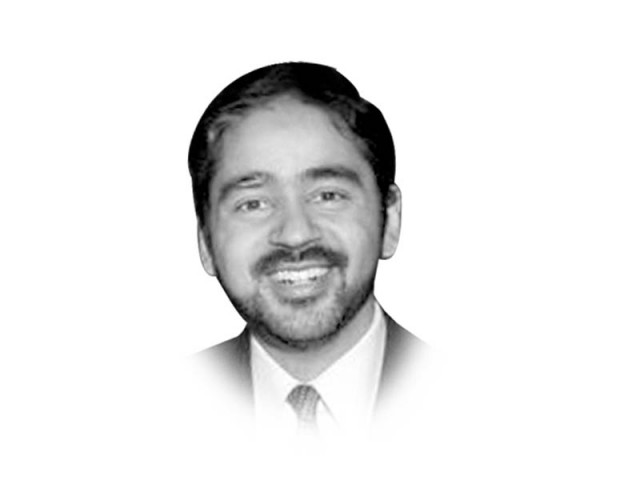A Darwesh at the frontline
The problems in Qabb Ilyas are a reminder of the evil within us

The writer is a Howard Hughes Medical Institute professor of Biomedical Engineering, International Health and Medicine at Boston University. He tweets @mhzaman
On a cold Saturday morning a couple of days ago, our driver Moosa took me and a colleague Dr Krista Donaldson (CEO of a medical device company, D-Rev) to Qabb Ilyas. The winding roads from Beirut were marked by regular security checkpoints staffed by armed guards, a reminder of the ongoing crisis. Tucked between local businesses selling winter clothes and fresh meat is a small primary health clinic operated in part by the efforts of local NGOs and international donors. Here, the number of patients have increased ten-fold in the last three years. What used to be a facility to see a few hundred people a year now sees nearly a ten thousand. Men and women, babies, toddlers and infants come here to get better. Whether it is vaccination or information about family planning, treatment of an injury, check up during pregnancy or management of a chronic disease, this small facility has become exemplary in Lebanon. It goes beyond most facilities by offering eye care, dental care and even lab tests within the facility.
Keeping the place together is no easy task. It is not just about providing care to thousands who come with all kinds of ailments but also making sure that the bills are paid, that the electricity continues to function, that the medicine and vaccine supplies are maintained, and that the place remains clean and welcoming.
At the helm of this small clinic is a simple man with a broad smile and a big heart. A doctor who has spent the last thirty years of his life in Qab-Ilyas: a Pakistani doctor from Mardan, Dr Darwesh Khan.
Dr Khan greeted us with traditional Pashtun hospitality. His office walls are decorated with certificates of commendation from organisations around the world. In the last three years, he has been a very busy man, seeing as many as seventy patients or more a day, nearly every day. But he is not one to complain. His broad smile was comforting and reassuring. It reflected both the simplicity of his person and the depth of his commitment. Never asking whether the patient came to the town legally or illegally, or wondering what faith they may profess, he was deeply inspiring. He works closely with the staff atInternational Orthodox Christian Charities (IOCC) and is equally comfortable with Muslim charities as well as organisations that are secular. His work transcends the boundaries that have so viciously divided us.
Darwesh Khan had little interest in talking about himself or how he does it all. He was far more interested in reminding us that this is a team effort, giving credit to his two fellow doctors, nurses and midwives who work with him. Switching effortlessly between Arabic, English and Urdu, Dr. Khan took the time to show us around and answer every single question that we had. Every single time with a broad smile that radiates kindness and understanding.
The problems in Qabb Ilyas are a reminder of the evil within us. It was painful and heartbreaking to visit the refugee settlement. Our collective failure, at the individual, institutional and global level is palpable and visible in the eyes of innocent children at the settlement. The lack of empathy from the global powers in general, and the regional powers in particular, is evident and makes for a gut-wrenching experience at the camp.
Yet, in the midst of this all, are people like Darwesh Khan, who through a force of compassion and with the skills to match, are showing us how to live better lives.
Published in The Express Tribune, December 15th, 2016.
Like Opinion & Editorial on Facebook, follow @ETOpEd on Twitter to receive all updates on all our daily pieces.
















COMMENTS
Comments are moderated and generally will be posted if they are on-topic and not abusive.
For more information, please see our Comments FAQ